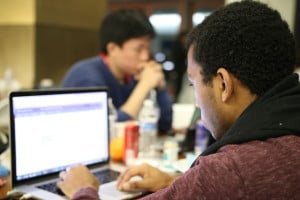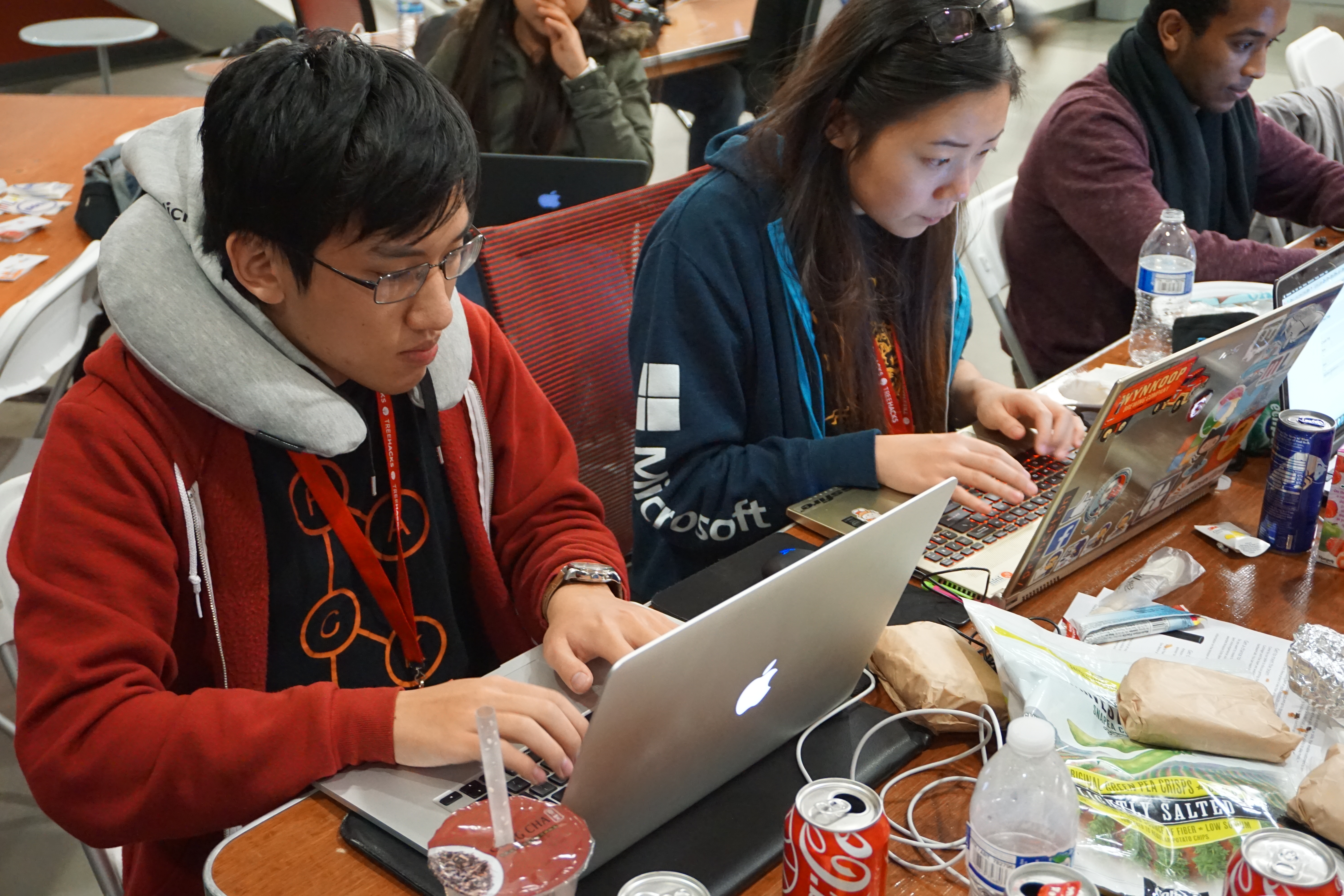
Going in for the long haul, a returning team to TreeHacks 2016 laid stakes on a more complex and expansible project that integrated multiple companies’ software. The Flagtrip team consisted of Andrew Luo ’17 and Dan Shiferaw ’17, along with Crystal Qian and Jonathan Tang, both juniors studying computer science at Princeton. Luo, Shiferaw and Tang are returning teammates from TreeHacks 2015, with Qian joining the team this year.
Their project, Flagtrip, is a real-time travel planning experience for multiple users to pin down travel destinations and keep track of logistical information such as flight data, Uber pricing and Airbnb stays.
After brainstorming a list of around 20 ideas, the team decided to create a program that the members felt was applicable to themselves. Luo thought his experiences of going to conventions and traveling involved mostly solitary planning even though several people attended the trips with him.
“Every summer, I go to Penny Arcade Expo (PAX), a gaming convention in Seattle, and it’s always one person who figures out the plane tickets and hotels and [tells] everyone else to Venmo them,” Luo said. “This way, it’s more collaborative. And you rarely travel alone, so I thought this would be useful, especially for college students.”
Each member’s specific expertise allowed the group to focus on different areas of the project more efficiently. The three members’ previous experience as teammates also meant that members knew each other’s work preferences.
“I think we got really lucky,” Tang said. “I know Ruby on Rails and back-end databases, Andrew likes front-end, Crystal is good with design, and Dan has been to three hackathons, so he’s just ready to learn everything. We didn’t plan the division of labor so perfectly, but it is quite nice.”
Including design and layout, the 70,000-line program for Flagtrip contains far more complex code compared to the group’s project last year, which focused on Facebook applications to generate statuses based on Shakespearean English. In contrast, Flagtrip required the pooling of logistical data from different companies including Uber, Airbnb, Google, Facebook and Sendgrid.
“Our project this time is definitely more well-rounded compared to last time,” Shiferaw said. “Last year, we had an app that did one thing well.”
In addition to its length, Flagtrip included the incorporation of a makeshift Airbnb application programming interface (API). An API consists of a set of app-specific building blocks often offered by tech companies to help programmers further expand their projects. However, Airbnb did not provide a public API for use, so the team needed to scrape together a back-end access point.
“It was a little difficult to parse [the data from Airbnb] — that’s why we only have average price — but I’m sure that with a little bit more time, we can include more,” Luo said.
While the short timeframe of most hackathons can be seen as favorable to smaller projects, some teams at TreeHacks, such as Flagtrip, decided to begin more extended and comprehensive programs with potential for future development.
“The more we built on it, the more we came to like it,” Luo said.
Contact Ariel Liu at aliu15 ‘at’ stanford.edu.
